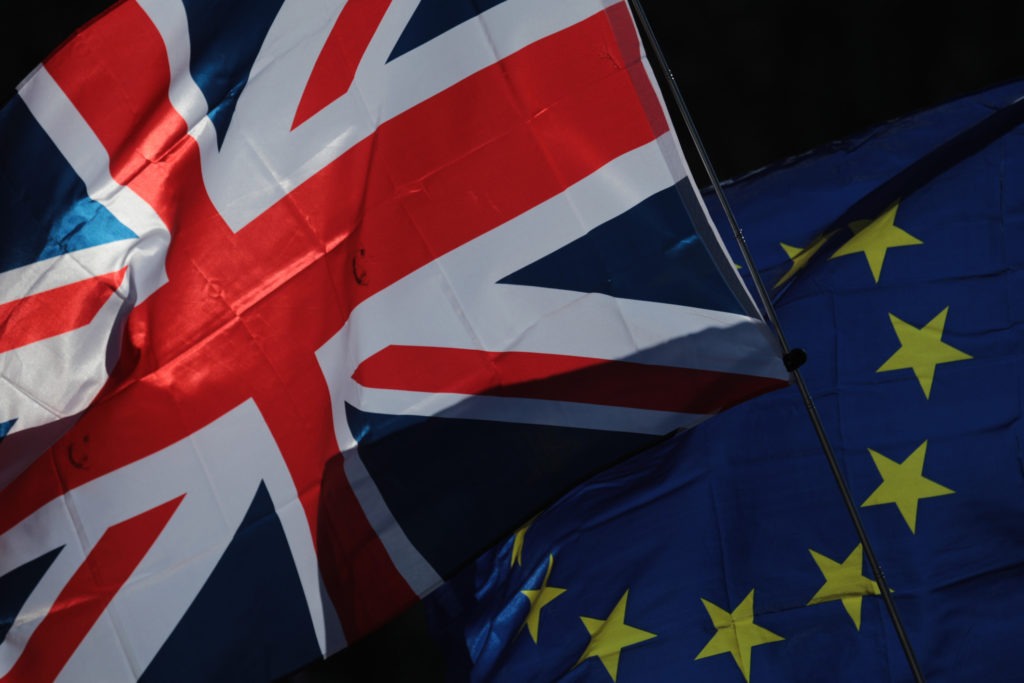Year in review 2019: Brexit
02 January 2020

2 January 2020
The UK was due to leave the European Union on 29 March 2019. However, nine months on and the country is still a member of the bloc, following not one, but two deadline extensions and the ousting of a Prime Minister.
Fears emerge
The first warnings of the year emerged at the end of January, as the Society of Motor Manufacturers and Traders (SMMT) announced that investment in the country’s automotive sector had plummeted in 2018. Compared to 2017, investment fell by almost half (46.5%) to just £588.6 million (€693.8 million) in 2018, amid fears over the UK’s future trading prospects with the EU and other key global markets.
SMMT figures also showed that UK car production fell to its lowest level for five years in 2018. Just 1,519,440 new cars left UK factories in 2018, a decline of 9.1% year compared to 2017, marking the second consecutive annual fall in car output.
′UK Automotive is on red alert,’ warned SMMT chief executive Mike Hawes. ′Brexit uncertainty has already done enormous damage to output, investment and jobs. Yet this is nothing compared with the permanent devastation caused by severing our frictionless trade links overnight, not just with the EU but with the many other global markets with which we currently trade freely.’
EU jobs
One of Germany’s leading economic institutes, Halle IWH, predicted that up to 100,000 jobs in Germany, many in the automotive sector, could be affected should Britain leave the EU without a trade deal. The group said the most affected areas would be Volkswagen Group’s hometown of Wolfsburg, and Dingolfing-Landau, the site of BMW’s largest German factory.
Further SMMT studies also revealed that one in three automotive-related businesses in the UK is already cutting jobs in preparation for Brexit, up from one in eight when the survey was last conducted in November 2018.
An indication that the mere threat of a no-deal Brexit is having a real impact on the UK economy, 11.8% of firms said that they had already divested from their UK-based operations and 13.4% are relocating operations overseas. Overall, three quarters (77.2%) of firms say that there has already been a negative impact on business even before the UK has left the EU.
Shutting down
The initial deadline extension from 29 March to 31 October caused problems for a number of UK-based carmakers that had decided to bring forward their annual plant shutdowns to avoid supply chain issues causing production bottlenecks.
BMW, Honda and Jaguar Land Rover (JLR) all announced plans to close their factories in April. The manufacturers account for about 55% of UK production, and the decision to close earlier than planned was not something that could be reversed overnight. In addition, BMW and JLR also shut their plants for several days following the second (missed) deadline of 31 October.
Manufacturing has not been able to recover from this, even without the typical August shutdowns, and was 14.5% down year-to-date at the end of November 2019.
Plant warnings
Alongside the shutdowns, carmakers have also announced fears over the continuation of their manufacturing facilities in the UK. Both Ford and Honda have shut plants, in Bridgend and Swindon respectively, although neither company attributes these moves to Brexit.
PSA Group has been the most vocal, warning on the future of its Ellesmere Port facility. The carmaker has chosen two plants in Europe to build the next-generation Astra, with the UK factory one of these, on the condition that Brexit results in frictionless trade.
′Frankly, I would prefer to put it [the Astra] in Ellesmere Port, but if the conditions are bad and I cannot make it profitable then I have to protect the rest of the company, and I will not do it,’ PSA boss Carlos Tavares said. ′We have an alternative to Ellesmere Port.’
Following its tumultuous year, Nissan announced a company-wide review, shedding jobs and plants around the world. Rumours dogged its Sunderland plant, with planned production of the X-Trail model cancelled and moved to Japan. Manufacturing of the carmaker’s Qashqai model could also move to Spain while its Juke may be built in another overseas plant. Shifts were also cut as the carmaker sought to improve efficiency at the plant.
Nissan Europe chairman Gianluca de Ficchy has also said the company would be unable to offset any tariffs imposed by a no-deal Brexit.
′The only clear conclusion we have reached is that if there were to be a no-deal Brexit with the imposition of WTO tariffs, it would not be sustainable,’ he said. ′That will represent a significant cost increase, which would make our products less competitive.’
Deal done?
In October, British businesses allowed themselves a moment of cautious optimism as the UK Prime Minister Boris Johnson and the EU had reached an agreement, potentially avoiding a no-deal Brexit.
However, the UK’s Parliament did not accept the deal, pushing the country into a general election. The outcome of this saw Johnson’s conservative party win a majority large enough to push the legislation through, with plans now in place for the UK to leave the EU by 31 January 2020.
The agreement envisages an ambitious, wide-ranging and balanced economic partnership through a free trade agreement that ensures no tariffs, fees, charges or quantitative restrictions across all sectors, with appropriate and modern accompanying rules of origin.